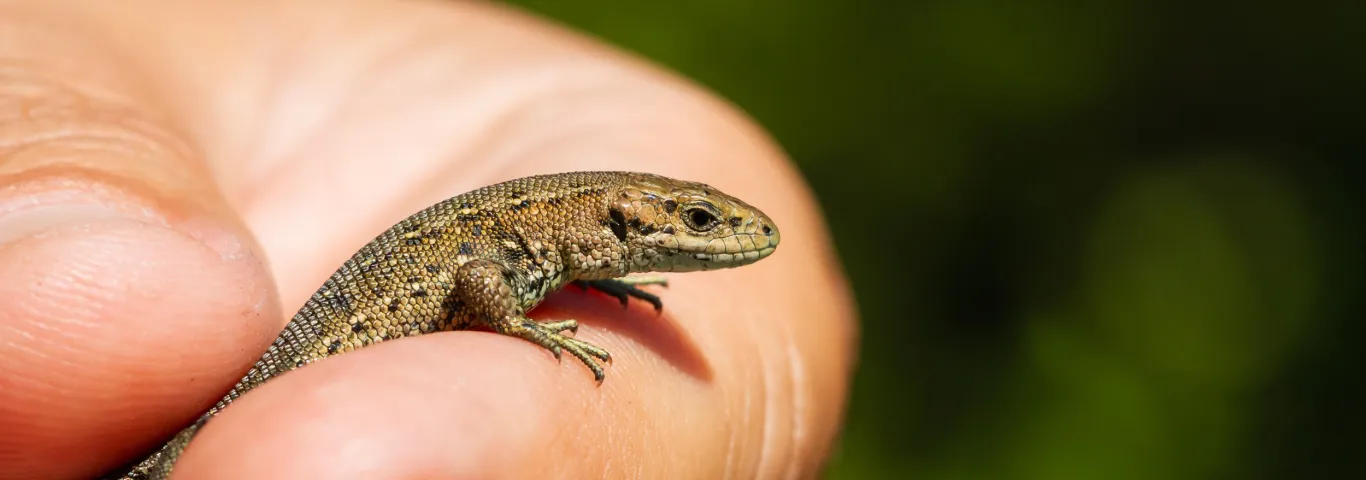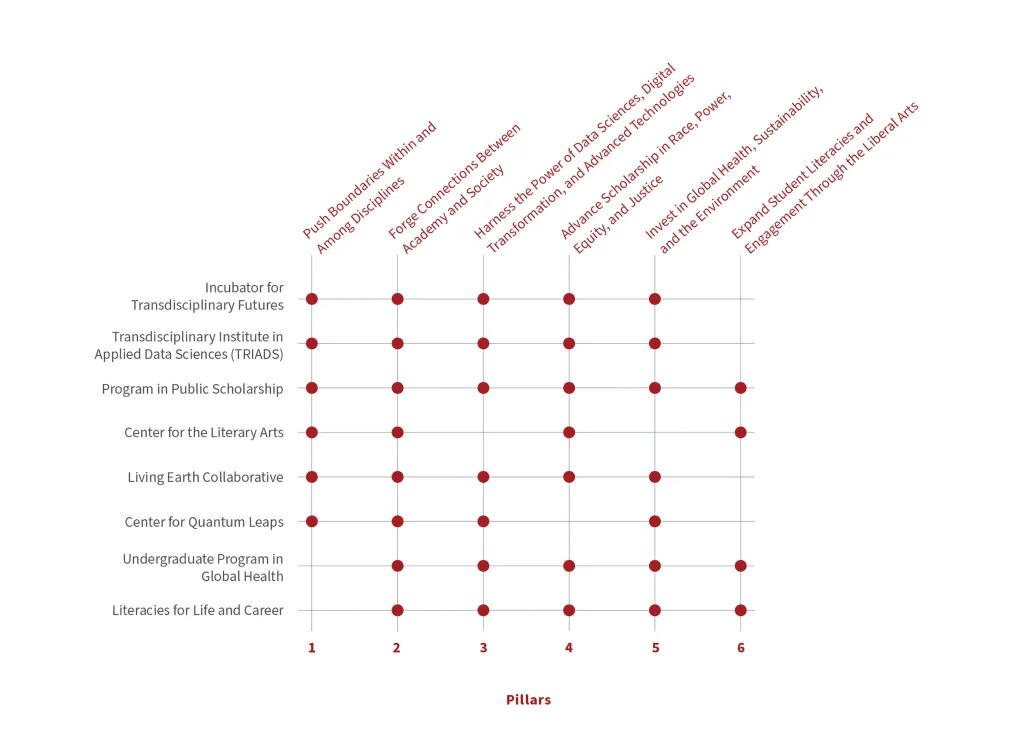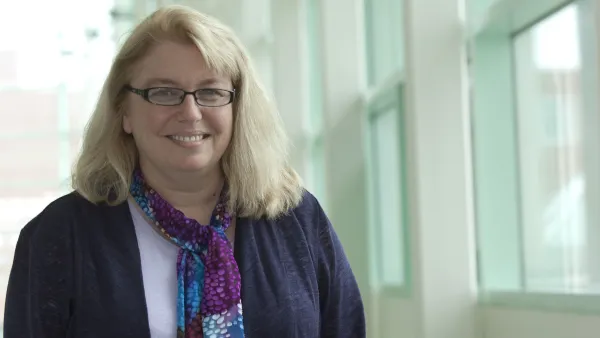New Ventures
The signature initiatives below build on existing strengths to create exciting and transformative new ventures for Arts & Sciences at Washington University. These initiatives were chosen after an extensive analysis of where we can make novel contributions across disciplines by building on our current resources and opportunities for momentum in ways that support the six Pillars and our values and goals.
Each initiative represents a powerful convergence of multiple units, disciplines, and areas of study that will be enhanced through greater collaboration. But in that convergence and community, each initiative will also support and distinguish individual disciplines, raising the stature of individual units throughout Arts and & Sciences.
Incubator for Transdisciplinary Futures
This initiative will support a series of multiyear thematic research and learning clusters, consisting of existing faculty from at least three diverse units, undergraduate and graduate students, and potential external partners. Each would include research funding to foster new collaborations, academic and public programming, and undergraduate and graduate courses. These clusters will provide a framework for developing vibrant student learning opportunities, as well as identifying areas of convergence that could help us reshape our research infrastructure and enhance our visibility on both a national and global scale.
Transdisciplinary Institute in Applied Data Sciences (TRIADS)
TRIADS will advance research that leverages the unprecedented resources of the computational age to address the most pressing social challenges of the 21st century. New tools and techniques such as artificial intelligence, natural language processing, computer vision, geospatial science, and more offer new opportunities for advancing our understanding of society. TRIADS will foster interdisciplinary teams that target big questions with big data: global migration and environmental change, social media and misinformation, demographic change and aging, structural inequality, and democratic decline. With these teams in place, Arts & Sciences at Washington University will be positioned to move aggressively in response to new events such as the COVID-19 pandemic.
Program in Public Scholarship
This program will establish Arts & Sciences at WashU as a leader in translating our work and its importance to a broader audience. We aim to develop new platforms to share our scholarship and increase our impact in the public and private sectors. To this end, we will explore the translation of our scholarship in all forms and formats; partnerships with local institutions and organizations; and the development of innovative courses, internships, certificates, or degrees.
Center for the Literary Arts
Arts & Sciences will be a global hub for writers, translators, and public intellectuals from across the globe through a new program in international written arts. The program builds on our top-rated MFA program in Creative Writing, a robust PhD program in Comparative Literature for International Writers, and a host of diverse faculty engaged in the study and practice of translation. We will amplify our research while expanding undergraduate and graduate programs that create, study, and translate international and global literatures.
Living Earth Collaborative
In collaboration with renowned local institutions, we will become a world leader in research, conservation, and education about the biological world and its interrelationship with human welfare, including environmental justice and public health issues. The new Living Earth Collaborative will hire stellar faculty, attracting top students to study at Washington University through premier research programs and enhanced collaborations with institutions such as the Missouri Botanical Garden, St. Louis Zoo, and Missouri Department of Conservation, among others.
Center for Quantum Leaps
Washington University is in a unique position — given its strengths in biology, biomedical and life sciences, and agriculture/plant science — to capitalize on quantum technologies with advanced instrumentation. We will create a field-changing program of research on quantum technologies in Arts & Sciences that will pursue novel research in astrophysics as well as an innovative focus on quantum devices and quantum computing algorithm development applied to biomedical and life sciences, in collaboration with the McKelvey School of Engineering and the School of Medicine, that can be applied to nuclear theory and drug discovery.
Public Health & Society
WashU's institutional strength in public health, enhanced commitment to racial diversity and inclusion, and the array of exceptional academic units within Arts & Sciences are the foundation for this distinctive program that emphasizes the social determinants of health, including the role inequalities play in health outcomes. Students will glean meaningful insight from course connections to environmental science; anthropology; biology; medical humanities; statistics and data science; women, gender and sexuality studies; and more. They will also develop the hallmarks of an Arts & Sciences education: a spirit of creative inquiry, the ability to organize and synthesize information, skills in written and oral expression, and a strong grasp of ethics.
Literacies for Life and Career
Our undergraduate curriculum will provide students with a set of competencies to successfully navigate a rapidly changing world. This literacy-based approach will focus on the acquisition of diverse knowledge areas and skills, including: media, narrative, and visual literacies; scientific, technological, and environmental literacies; numerical, computing, and data literacies; a solid grounding in ethics and civic responsibility; substantial understanding of human cultural diversity; a nuanced understanding of social and economic structures and global dynamics; critical thinking and problem-solving competencies; facility in oral and written communication; and leadership skills. These competencies will be indispensable not only for students’ future careers, but also for their individual well-being and roles as engaged citizens.


